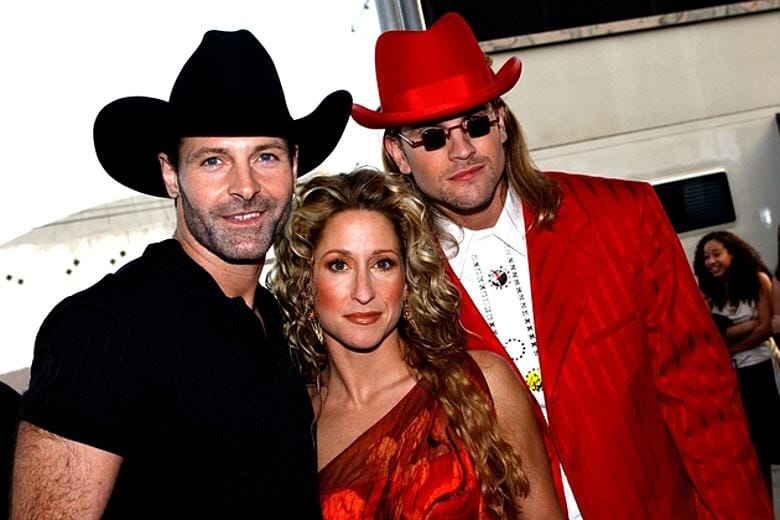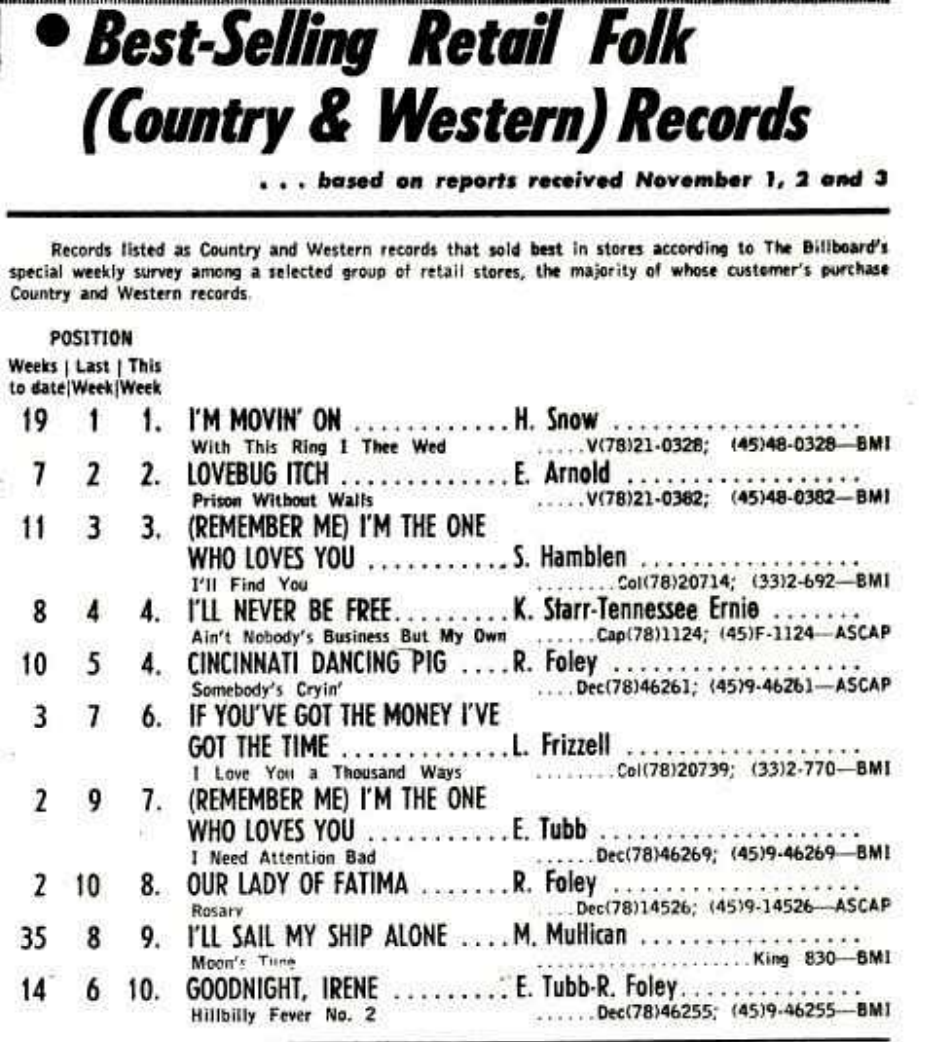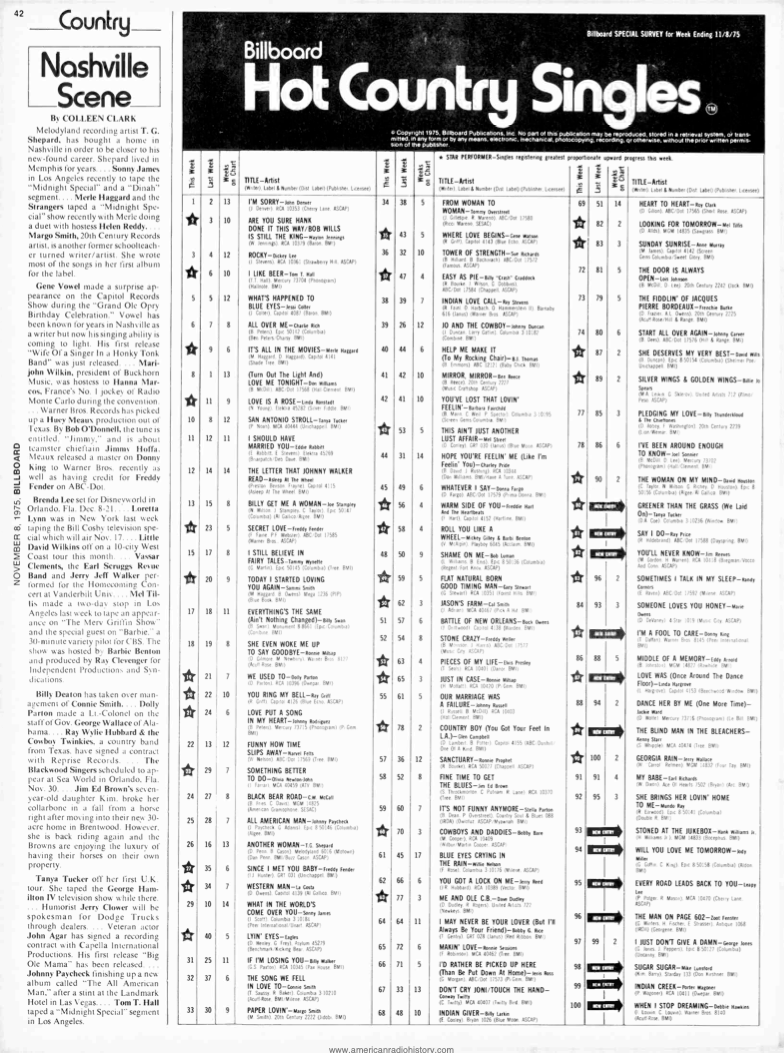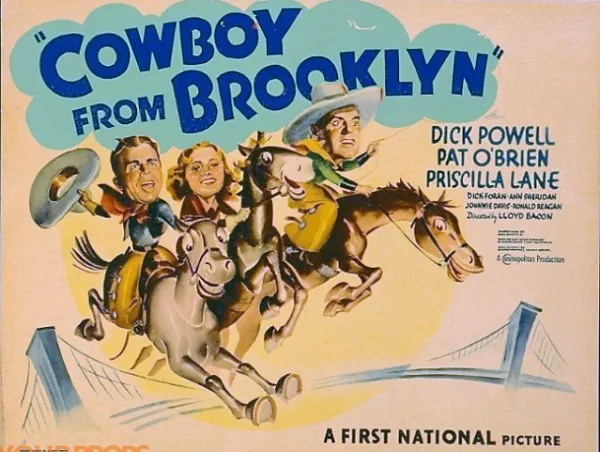This Week In Country Chart History: Standards, Sexism and Cincinnati Dancing Pigs

Back with more arcane country chart history, because as we all know it brings me great joy :) Hop in, let’s take a ride on the Billboard time machine…
75 Years Ago: November 11, 1950

In its 19th (!) week on the chart, we have the now-standard "I'm Movin' On," a Hank Snow composition that was also the Canadian's breakout hit. It's a very traditionally performed tune, laden with guitar and fiddle and driven by a swinging country shuffle; the influence of the more famous Hank (Williams, obviously), though, is felt in the tune's blues structure and Snow's somewhat stilted attempts at using slang ("Daddy" rarely sounded so proper)...
The version that ultimately became best known, though, was Ray Charles' cover — his first single to tap an existing country hit, predating his iconic Modern Sounds Of Country And Western Music by a few years. It has train sounds and pedal steel (!) like the original, but otherwise its groovy sound and call-and-response vocal transforms the tune into something you can't help but dance to.
The persistence of both boogie-woogie and Eddy Arnold is shown in the fairly odd "Lovebug Itch"; the persistence of "Chattanooga Choo-Choo" is shown by the success of a similarly jazzy and random song called "Cincinnati Dancing Pig" (???? close enough, I guess). The other major breakout on this chart is Lefty Frizzell's debut, "If You've Got The Money I've Got The Time" — here having been on the chart for just three weeks at this point (it would eventually spend more than five months there). A honky-tonk classic to beat all honky tonk classics.
"Goodnight, Irene" offers us another window into the tangled history of soul-folk that we were just digging into a few weeks ago: A traditional folk song, it was originally recorded (and lengthened) by Leadbelly, becoming one of his signature songs. In 1950, one year after Leadbelly died, the Weavers — including a young Pete Seeger — recorded a quite sanitized version (as sort of a…twisted homage) that became a major hit, which in turn inspired Ernest Tubb and Red Foley to record a countrified version.
Anyway, case study 500 million in folk and country being Black music!!
50 Years Ago: November 8, 1975

Ah, the '70s — here, we see the push and pull between the outlaws and the soft rock/easy listening vibe (John Denver, Charlie Rich — even this Merle song, "it's All In The Movies," is on the mellow side — etc.). Waylon and Jessi living up to their power couple status with "Are You Sure Hank Done It This Way" and "What Happened To Blue Eyes" in the top 10, Asleep At The Wheel at no. 12 (???? hard to fathom), Sammi Smith doing Merle and Bonnie in the top 20… it was a time.
A half century ago, Freddy Fender and Johnny Rodriguez — two Latinx artists— were in the top 25 of the country charts. Yes, we've gone backwards!!! Progress is not guaranteed!
Now, for the weird and occasionally bad anomalies:
"All-American Man," Johnny Paycheck: A randomly funky song that is explicitly anti-"women's lib"? Take this song and shove it, TBH.
"Easy As Pie," Billy "Crash" Craddock: Jesus, the anti-woman songs are…a lot. Making Nashville look not quite as exaggerated as I had argued…
"Our Marriage Was A Failure," Johnny Russell: Country heartache song taken to its logical extreme…
"The Blind Man In The Bleachers," Kenny Starr: You can't say they didn't like story songs in the '70s…
"The Man on Page 602," Zoot Fenster: Zoot Fenster! Whoever that is…about as weird a novelty song as exists, lol.
25 Years Ago: November 11, 2000

Some high highs — "Go On," "Without You," "Born To Fly" — and some low lows. John Michael Montgomery's "The Little Girl" might be the worst song I've ever heard — as we discussed in the last iteration of this series, the schlockfest at country radio was already well underway pre-9/11. "www.memory" in the upper echelon of the country chart is simply…too beautiful. I wouldn't say this moment was a country radio pinnacle, but also we need more "www.memory" energy in the world!
I say it every time, but it's still crucial to remember: Look at all these women! Jo Dee Messina, Shania, Patty Loveless, Lee Ann Rimes, Martina McBride, Terri Clark, Reba — SHeDAISY!!! Not one but two songs! And that's just the beginning. Obviously the chart is notably lacking diversity in just about every other way, but the same is true of today's charts, which don't come near this kind of parity from a gender perspective. There's just no excusing the current situation in Nashville and on the radio — again, the sharp regression that no one wants to take responsibility for.
Anyway, shout out Trick Pony, and cheers to hopefully some day returning to an aesthetically and otherwise diverse country chart:





